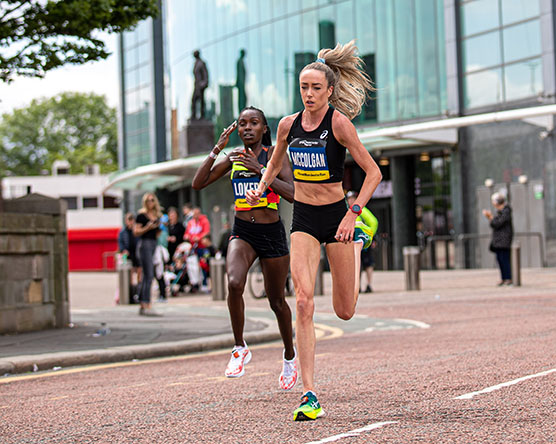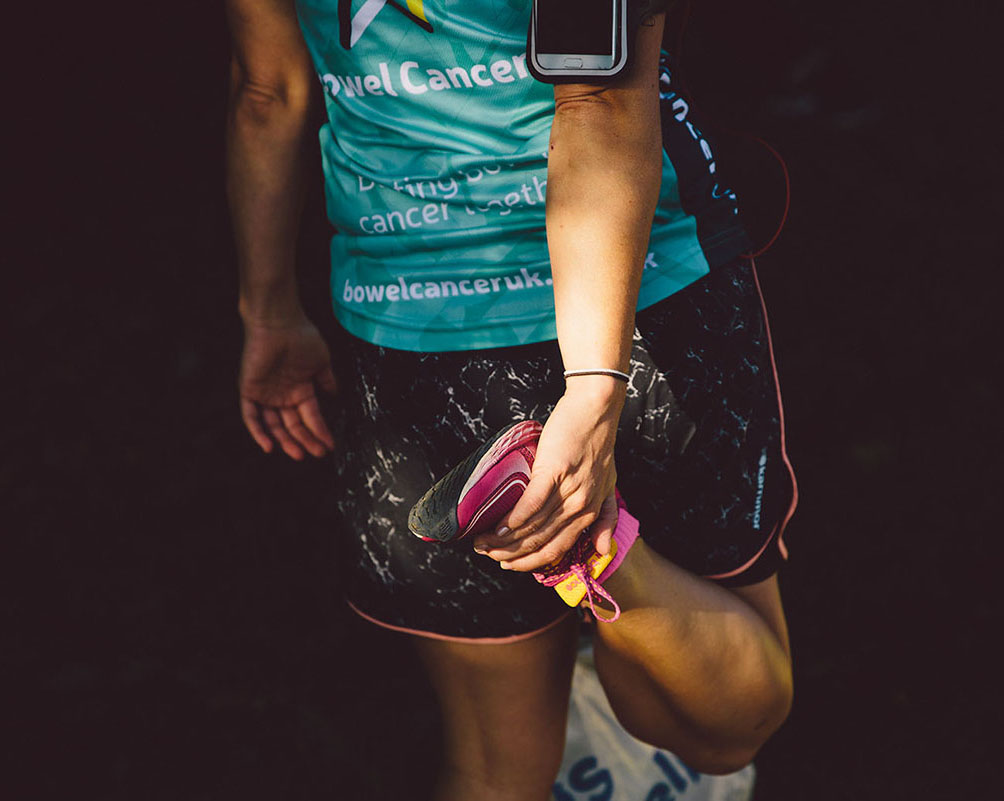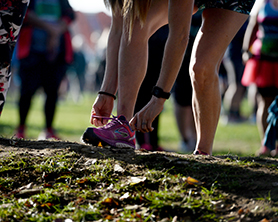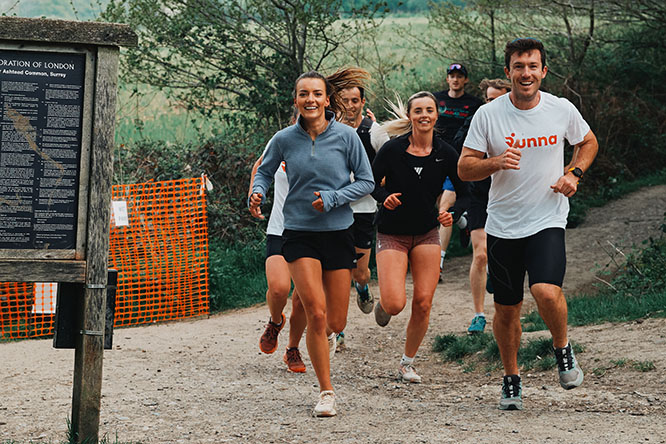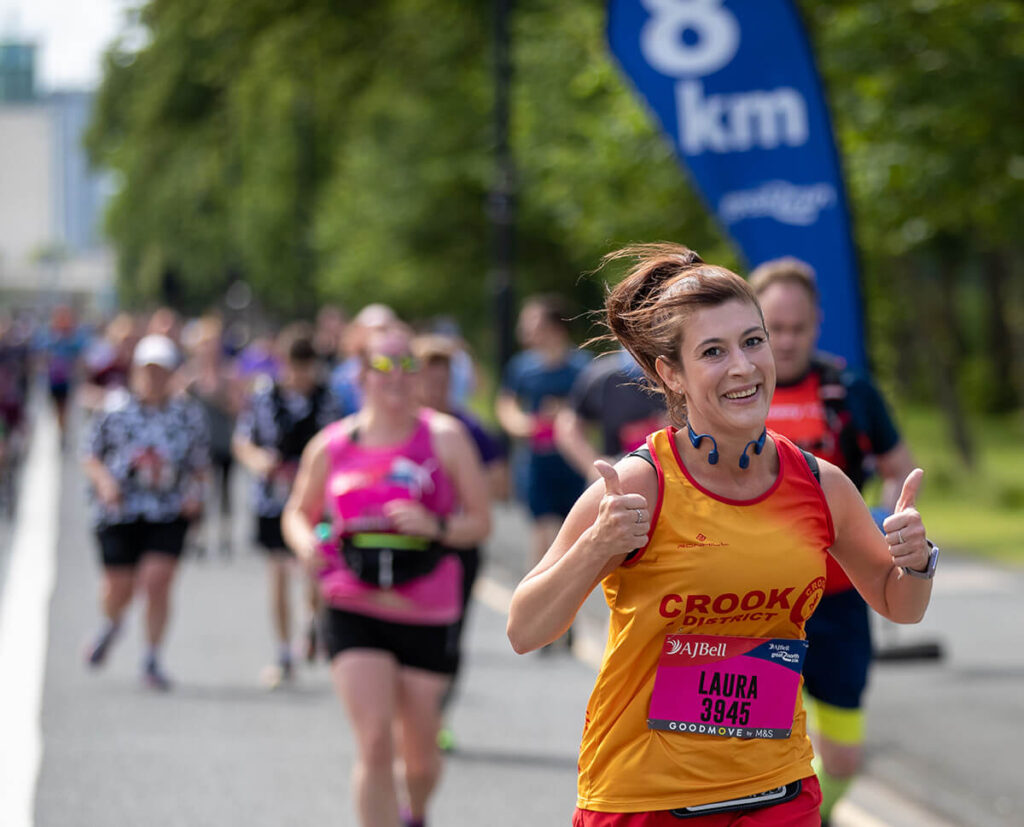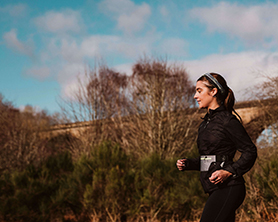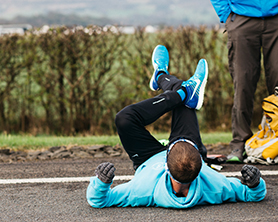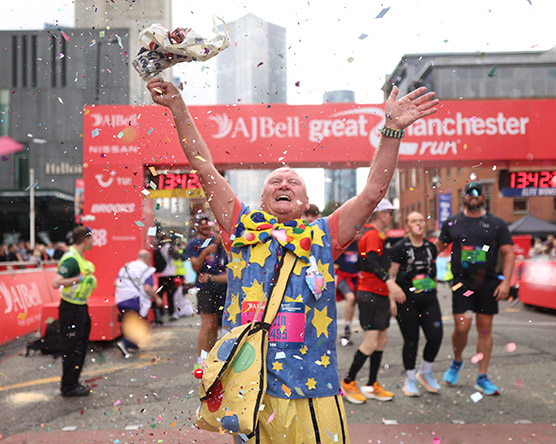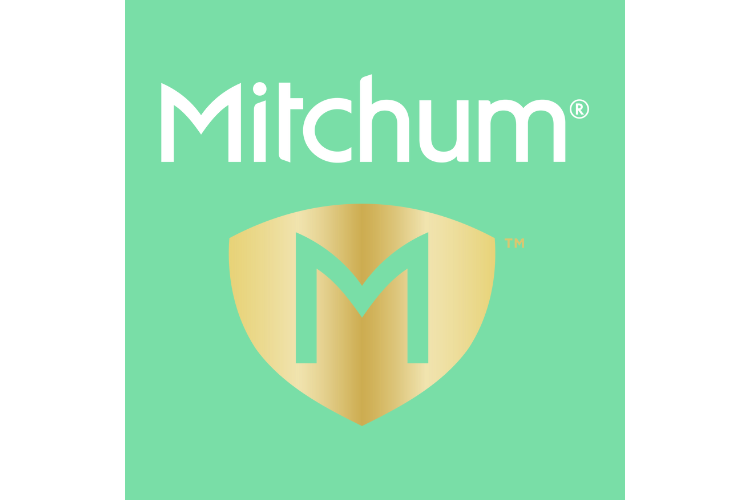Sports nutrition can feel like a complicated world, packed with influencers and brands making a lot of noise about different diets and products.
At best, these tips and tricks can give you new ideas and help you shake up your fuelling regime. But at their worst, they can contradict each other and cause serious confusion.
But while there’ll always be a new energy bar to try or a research paper to read, there’s plenty of advice that’s stood the test of time – and that’s what we’re going to share with you today.
Grab a knife and fork – let’s go!
Steady run? There’s no need to do anything special
If you’re sticking to three meals a day made up from a fist-size portion of complex carbohydrates (oats, sweet potatoes, root vegetables or pulses), a palm-size portion of protein (lean meat, fish, eggs) and unlimited salad or vegetables – but going easy on the dressings and condiments – then you’ll be fine. For steady runs, your body can rely on its fat stores – good news if you’re looking to tone up.
Remember the 80/20 rule
The most important thing about training is being consistent, and the best way to build consistency is to make your regime sustainable. Diet-wise, if you swear off all treats and indulgences, your new routine is more likely to feel like a punishment, and it’ll be harder – impossible, even – to stick to it long-term. That’s why we recommend the 80/20 rule – eating healthily 80% of the time allows you to be more indulgent 20% of the time.
Eat 1-2 hours before you run
You don’t need to eat anything special if it’s a steady one, but you do need something in your stomach. However, run too soon after eating and you’ll end up with cramp. For best results, try to time your runs for 1-2 hours after eating. Like an early run but not a fan of breakfast? Grab an energy bar or half a banana before you set off – every little counts.
Tougher run? Make some diet adaptations
As your runs get longer and more demanding, you do need to start tweaking your diet to fuel yourself properly – and that means more carbohydrates. Guidelines suggest that men may need up to 7g of carbohydrate per kg of body weight and women up to 5g per kg of BW to manage a tough training regime. To begin, aim for 1-2g of carbohydrate per kilogram of body weight in each meal – so if you weigh 80kg, you need at least 80g of carbs – and see how that feels.
Don’t forget the magic window
It isn’t just about eating to field your run, though – it’s also about eating to recover. After tough runs, you’ll need to pack in some carbohydrate and protein at a ratio of around 3:1 within 30 minute of your workout finishing. A slice of toast with scrambled egg, a rice cake and veggies with peanut butter or a homemade smoothie are all great options. Dig in – you’ve earned it! (and if you want more tips on eating for post-run recovery? Read this).
And if you’re in need of some inspiration, we’ve got you covered. Try the sample menus below depending on whether you’re aiming for an easy training day or a tough one – they’re healthy, varied and delicious.
Eating for easy training days
Option 1
60 minute low-intensity session
Breakfast: Blueberry bircher muesli
Lunch: Beans on toast, piece of fruit
Snack: Frozen vanilla yoghurt
Dinner: Baked seabass with rice noodle salad and salsa
Recover hot chocolate.
Option 2
Breakfast: Scrambled egg and pitta
60 minute low-intensity session
Lunch: lentil dahl with coriander and chili
Snack: two oakcakes with a yoghurt dip
Dinner: Chicken stir fry, fruit compote with creme fraiche
Eating for hard training days
Option 1
Breakfast: Blueberry bircher muesli
Snack: Banana and nut butter sandwich
Lunch: Chicken and quinoa salad
Pre-training: Sweet potato brownie
45-60 minute high intensity session
Post-training: 250mls flavoured milk
Dinner: Chicken with rice, berry and toasted almond yoghurt
Evening: Recovery hot chocolate
Option 2
60 minute low-intensity session
Breakfast: scrambled egg and pitta
Pre-training: Banana
45 minute high-intensity session
Lunch: Sweet potato and red lentil soup; slice of fruit tea bread
Snack: Fruit smoothie
Dinner: Fish pie; Greek yoghurt and fruit; recovery hot chocolate.
Need a training plan? You can download one here. If you’d like to find out more about pre-run nutrition, check out our top tips here.



